Speaker Biographies and Abstracts
Professor Hilary Graham (University of York)
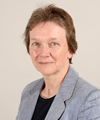
Hilary Graham is Head of the Department of Health Sciences at the University of York. Her research is focused on health inequalities – on why people from poorer backgrounds have poorer health and shorter lives than those in more advantaged circumstances. She has looked particularly at everyday behaviours like cigarette smoking and how social disadvantage across life – from childhood to adulthood – is linked to health-damaging behaviours. She also contributes to undergraduate and post-graduate programmes at the University of York.
Hilary Graham was Director of the DH Public Health Research Consortium (2005-11) which aims to improve the knowledge base for interventions to improve health and tackle health inequalities. Her books include Unequal Lives: Health and Socioeconomic Inequalities (Open University Press, 2007) and Understanding Health Inequalities (Open University Press, 2010).
Professor Karl Atkin (University of York)
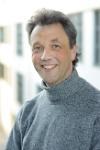
Karl Atkin holds a personal chair at the University of York. He is medical sociologist with a background in doing qualitative research in multi-disciplinary and culturally diverse settings. His work has a particular focus on understanding the social consequences of various long standing, chronic conditions. This has led him to become especially interested in how medical knowledge is produced and historically grounded. Professor Atkin is managing editor of Ethnicity and Health (Routledge Press) and chairs the public outreach sub-committee, on behalf of the National Screening Committee (NHS) for Sickle Cell and Thalassaemia.
John Snow’s York: life and death in 19th century England
This presentation will locate the work of John Snow within a broader historical, social and political context. It will explore John Snow’s intellectual influences before outlining the general impact of his work on medical knowledge. The presentation will begin by focusing on John Snow’s childhood and early career before providing an introduction to his work on cholera and anaesthesia. This introduction will assess the extent to which his ideas challenged existing intellectual (and political) theories about surgery and public health. The presentation will end by reflecting on how the initial critical response to John Snow’s work provides useful insights – relevant today - about how medical knowledge is produced and acted up on.
Dr Richard Barnett (Wellcome Trust and University College London)
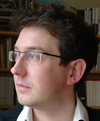
Dr Richard Barnett dropped out of medical school in London to become a writer and historian. He has taught at the universities of London and Cambridge, and was a judge for the inaugural Wellcome Trust Book Prize. At the moment he is a Wellcome Trust Engagement Fellow, and an Honorary Research Fellow in the Department of Science and Technology Studies, UCL. His first book, Medical London: City of Diseases, City of Cures, was published in 2008, and was a Book of the Week on BBC Radio 4, and his new book, The Dedalus Book of Gin (published in the US by Grove Atlantic) is out now. He has visited the cellars of Bedlam for Time Team, the intricacies of heart transplantation for the Guardian science podcast, the history of vaccination for BBC4, and the insectories of the London School of Hygiene and Tropical Medicine and the sewers of Clapham for Resonance FM.
John Snow and cholera
On 8th September 1854 a party of men approached a communal water-pump on Broad Street in Soho, and watched as a workman removed the pump-handle. According to a local GP, John Snow, water from this pump was responsible for a terrible cholera outbreak, which had killed hundreds of people in this area over the previous weeks. With this argument Snow overturned hundreds of years of medical orthodoxy, and showed that dirty water, rather than dirty air, caused cholera. In this talk we’re going to step back into John Snow’s Soho. We’ll visit his haunts, explore his own life, and discover just how he came to challenge conventional thinking about cholera and dirt.
Dr Stephanie Snow (University of Manchester)
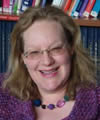
Author of Operations Without Pain: The practice and science of anaesthesia in Victorian Britain (Palgrave 2006) and Blessed Days of Anaesthesia: How anaesthetics changed the world (Oxford University Press, 2008; 2009) which won highly commended in the 2009 History Today/Longman Book of the Year Awards, Stephanie Snow is a historian at the University of Manchester. She did her PhD thesis on the life and work of John Snow and is married to his great great great nephew. Her current work focuses on contemporary medicine including an international history of stroke since the 1950s and a history of Guy’s and St Thomas’ in London from the 1970s to the present.
Saving Pain, Creating Science and Managing Risk: John Snow and the establishment of anaesthesia
The story of anaesthesia takes us to the heart of one of the most fascinating and controversial innovations of Victorian medicine which raised fundamental questions about the nature of pain and indeed, of life and death. John Snow was Britain’s ‘first’ anaesthetist and the lecture uses his anaesthetic casebooks and writings to build up a picture of his life in the late 1840s and 1850s treating patients in homes and hospitals across London, and undertaking experimental work which determined the scientific basis of anaesthesia as we know it today. It also maps Queen Victoria’s quest to use pain relief in childbirth which eventually led to Snow attending the Queen in 1853 and 1857 during the births of Prince Leopold and Princess Beatrice.
Dr Andrew Hayward (University College London)
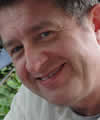
Dr Andrew Hayward trained in medicine at St Thomas' Hospital London during which time he had minimal interest in epidemiology or public health! Clinical work gave him a growing sense that we were doing "too little, too late" and of the need to tackle the underlying determinants of health rather than simply dealing with the consequences. This prompted a move to Public Health training and specialisation in infectious disease epidemiology and control including training at the Health Protection Agency and the London School of Hygiene and Tropical Medicine. Andrew worked as a Lecturer in Public Health Medicine at the University of Nottingham moving to University College London to develop the UCL Centre for Infectious Disease Epidemiology. His MD focussed on understanding the impact of GP antibiotic prescribing on the development of antimicrobial resistance. Subsequent work has included research into prevention of influenza in elderly care homes, the community epidemiology of seasonal and pandemic influenza to inform control, evaluation of the NHS Clean Your Hands Campaign and the social determinants of tuberculosis informing the development of enhanced services for homeless people, drug users and prisoners.
John Snow and public health today
John Snow is widely regarded as the "Father of Epidemiology". His approach to understanding causality through meticulous investigation of the distribution of disease and his tireless work to apply this knowledge to prevention provide a model inspiring epidemiologists and public health physicians to this day. His approach underlies many of the great sanitary reforms of the 18th and 19th century which underpin public health: clean water, clean air, improved housing. In the 20th century new generations of British epidemiologists continued to use observational approaches to understand causation, most notably identifying tobacco as the number one threat to health. But what is the role of epidemiology today? How can we use the tools he gave us to tackle the major health problems of the 21st century?
The Honourable Hugh Bayley
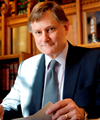
Elected as MP for York in April 1992. Hugh’s postgraduate degree was at the University of York. His previous jobs include: fulltime trade union official, independent film maker, lecturer in Social Policy, Research Fellow in Health Economics at the University of York. As an MP he served as a member of the House of Commons Health Select Committee, a Minister at the Department of Social Security and Chairman of the Westminster Foundation for Democracy. He is currently a member of the International Development Select Committee, the founder of the All Party Parliamentary Group on Africa, the Labour Leader at the NATO Parliamentary Assembly, a member of the Board of Parliamentary Network on the World Bank and a member of the Chairman's Panel, chairing debates in Westminster Hall and Public Bill Committees.
